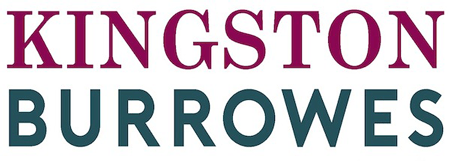You might think that the hard work is done once you’ve successfully recruited those brilliant new staff members, but just like everything else in business, the reality is that its only just begun. Payroll is one aspect that can be more complex than originally anticipated.
The requirements and legalities enforced by HMRC can be daunting if you’re new to payroll and at a minimum you will need to collect tax and National Insurance contributions from your employee wages as well as ensuring that you pay HMRC on time. Depending on the setup of your business and the individuals working for you, there are also likely to be other factors to bear in mind.
Fine tuning your payroll can save your business precious time and money. In this article, we review what payroll is, what HMRC requires, and how to correctly pay your employees.
What does Payroll cover?
In addition to calculating employee salaries and wages, payroll also includes any bonuses, allowances, and benefits received by an employee, as well workplace pension contributions (if applicable).
Most importantly however, it includes tax deductions and accurate reporting to HMRC.
Deductions
Gross Pay describes an individual’s total earnings before deductions are made for income tax, national insurance contributions (NICs), auto-enrolment and (if applicable) student loans. Once these deductions have been made, the remainder is usually termed nett pay or take-home pay.
You must pay your new employee at least the national minimum wage, which stands at £8.72 an hour in 2020/21 if they are over 25.
Deductions that you’ll need to calculate and pay to HMRC include the following:
- Income Tax
- National Insurance
- Pension contributions
- Student loan repayments
- Child maintenance payments
Deductions must be paid to HMRC by the 22nd of each month (or 19th if paying by post). Failure to pay on time could result in a penalty in addition to a daily interest fee.
Auto-Enrollment
As an employer you are required by law to offer a workplace pension scheme for employees aged over 22 (up to state pension age) and earning at least £10,000 pa. Employees do not have to opt-in, but for those who do, a minimum 3% of their pay goes to the workplace pension provider – and as their employer, you must contribute a minimum of 5% (8% total minimum contribution).
Payslips
All employees are legally entitled to a payslip and this must include the following information:
- Gross pay
- Deductions—tax, national insurance, student loan payments, etc
- Nett pay
- Method of payment
Benefits in Kind
If you are offering your employees any additional benefits, HMRC will need to be notified of these benefits using a P11D form as they are taxable items. The annual deadline for notification to HMRC is 6th July.
Taxable benefits in kind may include:
- Accommodation
- Company car
- Medical coverage
- Gym membership
- Travel allowance
- Interest-free loan
Reporting Employee Changes
Each time a new employee joins your company or an existing one leaves; you are obliged to inform HMRC of this information.
Additional changes you will need to report on include:
- Employee leave of absence periods
- Employee joins workplace pension
- Address changes of an employee
- Death of an employee
- Changes in gender of an employee
Employment Allowance
Finally, Employment Allowance is designed to help smaller employers with their employment costs by reducing their annual National Insurance liability by up to £4,000. To be eligible, your Class 1 National Insurance liabilities must be less than £100,000.
In practice, you’ll pay less employers’ Class 1 National Insurance each time you run your payroll until the £4,000 has gone or the tax year ends (whichever is sooner). The Federation of Small Businesses provides more information on Employment Allowance.
To go it Alone or Get some Support?
It is clearly no small undertaking to run a payroll but with preparation and careful attention to the detail it is possible. However as with all aspects of running a business there are times when it is more efficient and less stressful to source expert help.
Our payroll bureau can provide that support at affordable prices, no matter how many people you employ. Sometimes when you run a business, you just need simple, cost effective services provided by experienced individuals, which is exactly what our Payroll Services deliver.
For more information please contact Kim on 020 3627 4321 or email kimbishop@kingstonburrowes.com




